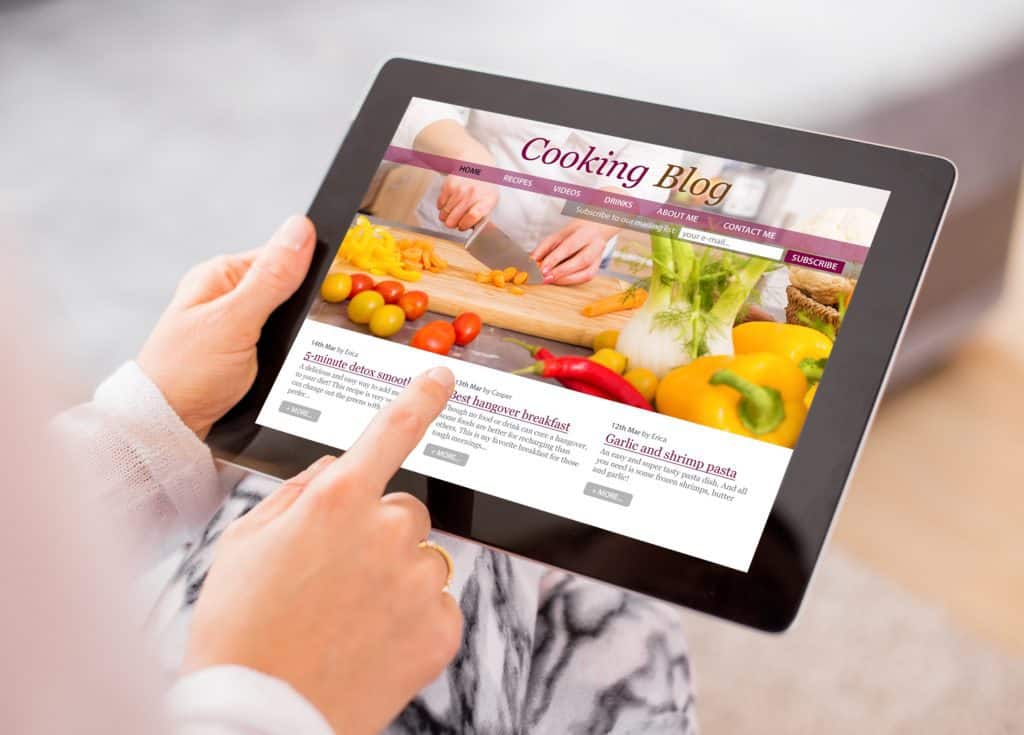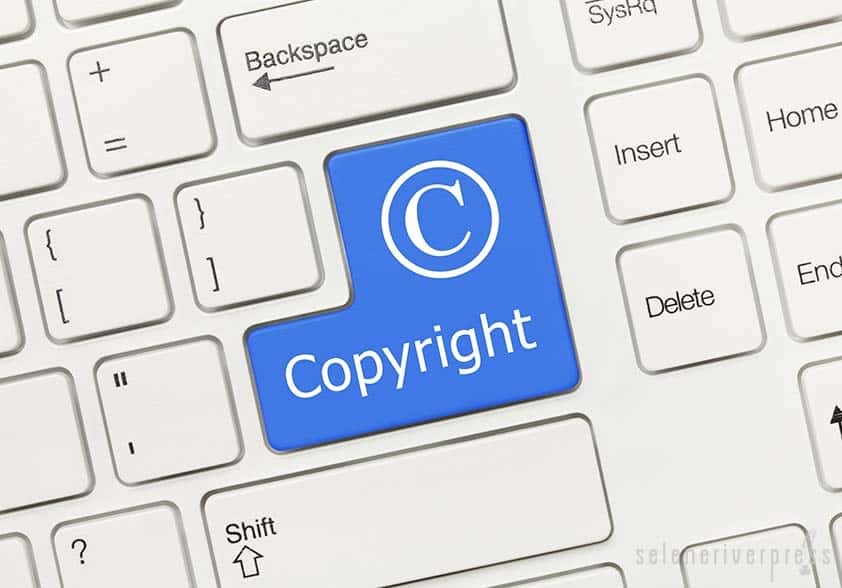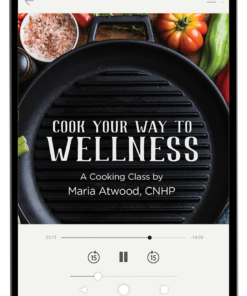The popularity of natural remedies featured in food blogs, ebooks, and other online endeavors has taken the world by storm! Before the internet, we simply subscribed to our favorite food and herbal magazines. And with the help of our well-worn library cards, we stockpiled the latest and greatest cookbooks from our favorite recipe authors.
I’m not saying that we no longer buy magazines or use our local library to find cookbooks with great recipes. However, it now seems that, for the most part, we rely on “Dr. Internet” to answer our health questions and find new recipes. Yes, with a quick subscription to our favorite online newsletters, we suddenly have access to a wealth of information—without even getting up from our computer chair!
It’s likely that this trend will continue well into the future. Yet those of us who write blogs or other online content can make unintentional errors that may lead to accusations of copyright infringement. Allow me to tell you of my own personal run-in with a situation that left a deep impression on me, after which I committed to making sure that I wouldn’t be caught up on the wrong side of this issue.
My personal story involves the publisher and website for whom I write my blog posts, Selene River Press. The well-informed owner of SRP helped me navigate through a difficult situation when another blogger accused me of infringing upon the copyright of her recipes!
Now, allow me to tell you a little of my story regarding this incident, which will hopefully prevent you from experiencing a similar scare. The guidelines included at the end of this blog post are important to follow whenever you use a recipe that you didn’t personally create and cannot legally call your own.
I’m very familiar with foods and creating recipes, and whenever I use someone else’s recipe in my blog posts (whether I adapt it or keep it as is), I always give credit and link to the original source. However, I discovered that it may occasionally be necessary to ask for written permission directly from the author and/or their representative.
Before I continue with my story, allow me to note here that copyright protection does not extend to recipes that are mere listings of ingredients. However, copyright protection does cover any surrounding illustrations, descriptions, and explanations (such as introductory text or notes on the recipe written by the author). Even so, it is considered a professional courtesy to always give credit to the original source when you use a recipe—and even seek written permission if a particular website requests that you do so. (See the official copyright guidelines included at the end of this post.)
In my case, I was simply not aware of that fact that in some situations written permissions should be sought if you use a recipe, and that you should definitely seek written permission if you use any of the surrounding content from the author about the recipe, as that is copyright protected. In my desire to share some lovely recipes from one particular blogger, I used them in one of my blog posts. Even though I gave full credit to the author and provided a link to her website, it came back to bite me. How did this happen?
First, let me give you a little background. I am a chapter leader for the Weston A. Price Foundation, and I always look for recipes that I know have all or most of the elements that would meet the Nourishing Traditions philosophy of Sally Fallon Morell (also see her classic cookbook of the same name). When I’m looking for websites or blogs that I can learn from or that will inspire me, for the most part my searches are centered on this kind of content.
I frequently find recipes that fit nicely with my subject matter. Not only do I give my readers a good “NT” (Nourishing Traditions) recipe, but I also introduce hundreds of them to the blogger’s website. Yet rather than appreciate the exposure, I was surprised to find that one blogger was more eager to turn me in rather than benefit from a potential wider audience for her own website.
At some point in time, my use of this particular blogger’s recipes came to the attention of someone who, for whatever reason, reported me to the blogger instead of contacting me directly. Although I included full credits and links to the blogger’s website, this person told the blogger that my use of these recipes was an infringement of her copyright, and even recommended that the blogger report me to a DMCA Takedown Service Provider (in this case, DMCA.com)! The purpose of these takedown providers is to help writers and websites enforce their rights under the DMCA (Digital Millennium Copyright Act). They monitor content, issue takedown notices, and otherwise help with the legal intricacies of online copyright law.
The legal implications of violating the DMCA can potentially lead to adverse consequences to both writers and publishers. However, the first step is usually to issue a “takedown notice,” which is a warning telling you to take down the article or post.
Personal Note: Tom Howard, Community Manager of Blogging.com, suggests that if you’d like to take a deep dive into copyright and DMCA law for bloggers (or anyone who publishes online) you should definitely read and store his article on copyright and DMCA here. I agree that it is a must read!
There had been no actual copyright infringement on the recipes, and as I said, I also gave the blogger full credit and linked to her website. In addition, I could find not find any notification on her website requesting (as she claimed) that anyone wanting to use her recipes first seek her written permission. Given all of this, I was completely dumbfounded by her complaint.
However, I did inadvertently include one of her personal comments from her introduction to the recipe. This small error should not have been enough cause to report me when a simple phone call or email to a fellow health writer would have done the trick.
In fact, the website at that time clearly stated: “Love it? Share it!” This statement appeared at the end of every recipe on her blog. Maybe it should have read: “Love it? Email me for permission to share it!”
Bottom line: Please be sure that before you go reporting anyone you think has violated the DMCA, make very sure that you have a real and verifiable complaint. Also, have the courtesy to call or email the supposed offender. It shows professionalism and courtesy, even to those who may be guilty!
What Is Copyright Law Regarding Recipes?
The entire law regarding the copyright of recipes is very short. As stated by the U.S. Copyright Office: “Copyright law does not protect recipes that are mere listings of ingredients. Nor does it protect other mere listings of ingredients such as those found in formulas, compounds, or prescriptions. Copyright protection may, however, extend to substantial literary expression—a description, explanation, or illustration, for example—that accompanies a recipe or formula or to a combination of recipes, as in a cookbook.”
The DMCA’s Ultimate Guide to Copyright
Copyright Basics
You can find a useful guide to copyright basics at Who Is Hosting This? This website publishes user reviews of web hosting companies and is a good general resource for bloggers. Here’s what they say about the fundamentals of copyright law:
“Copyright is the legal and exclusive right to copy, or permit to be copied, some specific work of art.
“If you own the copyright on something, someone else cannot make a copy of it without your permission.
“Copyright usually originates with the creator of a work, but can be sold, traded, or inherited by others.”
Regarding whether or not copyrights are necessary for recipes, their guide says the following:
“Recipes themselves, including lists of ingredients and basic instructions for preparation, are not eligible for copyright protection.
“A detailed editorial about your experience making a dish and eating it, as well as any photos you take during the process, are eligible for copyright, though.”
As you can see, recipe ingredients and instructions are not protected. That’s logical because a recipe without instructions is just a list. So the instructions, being part of the recipe, are not protected.
Educate Yourself!
In an effort to better understand the ins and outs of recipe copyright law and many other topics related to food bloggers and cookbook authors, I emailed Dianne Jacob, an editor, writer, and coach. Jacob is also the author of Will Write for Food. You’ll find twelve power-packed chapters that cover the nuances of publishing cookbooks, adapting recipes, and other subjects that food writers should educate themselves on. A must-have if you’re a food blogger or intend to publish a cookbook. Read more at her blog and visit her website.
[xyz-ihs snippet=”Begin-Authors-Note”]Afterthoughts from the Traditional Cook
In another life, I will no doubt be able to ponder all that I should and shouldn’t do to be safe from things that may hurt me. However, at the moment I am a mere human being whose limited courage takes me only so far (sigh). So I will need to accept where the journey takes me after each mistake and be glad I have experienced one more lesson in life! Don’t take it for granted that trying to do the right thing means that it will turn out perfect.
Oh, and by the way, be careful when it comes to recipes!
Maria Atwood, CNHP
[xyz-ihs snippet=”End-Authors-Note”]Please share and read my blog posts here.
Note from Maria: I am a Certified Natural Health Professional, CNHP, not a medical doctor. I do not diagnose, prescribe for, treat, or claim to prevent, mitigate, or cure any human diseases. Please see your medical doctor prior to following any recommendations I make in my blogs or on my website.
Images from iStock/ArtemSam (main), grinvalds (cooking blog), EtiAmmos (light bulb).



